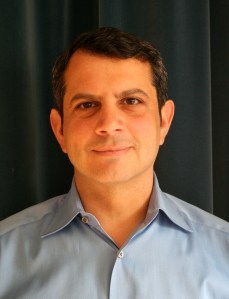Just a few months ago, ride-sharing services SideCar, Lyft, and Tickengo received cease-and-desist letters from the California Public Utilities Commission. Well, at least one of them is taking that threat very seriously: In response to regulatory scrutiny, SideCar has brought on industry veteran David Phillips as its new head of policy.
Phillips is no slouch when it comes to government and regulatory concerns: He was one of the first lawyers to join AOL, back in 1994 when it was bringing a whole new wave of connectivity to users. He’s also at various times represented Napster and IGN/Fox Interactive Media. So with that background, what makes him want to join a startup like SideCar?
Well, for one thing, he and SideCar CEO Sunil Paul go way back, as they both worked at AOL during the early days of the company. But he’s also drawn to the opportunity because ride-sharing is in its infancy and there’s a great opportunity to help shape the regulatory framework around new technologies that enable it.
 “My twin passions are public policy and tech entrepreneurship, and they’re often not matched in an early stage venture,” Phillips told me. One of the big problems that SideCar and other ride-sharing companies face is that regulatory agencies don’t have an easy way to classify the services that they provide. They don’t neatly fall under limo or taxi services, but regulators are generally trying to squeeze them into one of those two categories.
“My twin passions are public policy and tech entrepreneurship, and they’re often not matched in an early stage venture,” Phillips told me. One of the big problems that SideCar and other ride-sharing companies face is that regulatory agencies don’t have an easy way to classify the services that they provide. They don’t neatly fall under limo or taxi services, but regulators are generally trying to squeeze them into one of those two categories.
Phillips will be working with government agencies and regulators, essentially acting as an evangelist for ride-sharing in general, and SideCar in particular. The idea is to show them how smartphone technologies can be used to safely and efficiently improve the transportation industry, and to convince them of the benefits that come from ride-sharing. Those include reducing urban congestion, and reducing fossil fuel usage.
Of course, SideCar will lean on Phillips not just for its launch market of San Francisco, but also as it looks to roll out in new cities around the country. The startup just launched in Seattle last week, and CEO Sunil Paul is scheduled to meet with local policy makers on Thursday. As it looks to expand further, Phillips will seek to explore the unique regulatory agencies and requirements faced in each city.
While he said SideCar won’t be “asking permission” from local agencies before entering new markets, the company does hope to engage with regulators early on. “I do want to engage with regulators,” Phillips said. “Our position is not that regulation does not apply in this market, but it needs to be applied intelligently.”
SideCar recently raised a Series A round of $10 million led by Lightspeed Venture Partners and Google Ventures. Other investors include Spring Ventures, Huron River Ventures, SV Angel, Lerer Ventures, First Step Fund, Jeff Clarke, Lisa Gansky, Robert Goldberg, Jared Kopf, Konstantin Othmer, Mark Pincus, Martin Roscheisen, Josh Silverman, and Thomas Varghese. The company has about 20 full-time employees today, but plans to double that over the next four-to-six months.
